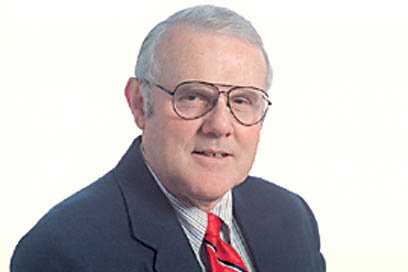‘Futuring” is a good thing, especially for the state’s fourth-largest city. Vancouver has been looking to the future for some time.
The current round, focusing on the city’s $10 million budget deficit, uses the Horizon community connection process for instant feedback. As a participant among public groups last week, I held a gadget similar to a television remote control to record my reactions, anonymously, to various questions.
It is a good thing to involve citizens in strategic planning and visioning for their home. It’s also helpful to clear up misconceptions about the place where they live. Examples: Vancouver does not live in the shadow of Portland, and is not a copycat of its metro neighbor. Likewise, Vancouver is not pouring $2 million a year in subsidies into the Vancouver Hilton Hotel, nor to a sprinkling of downtown parking towers, as naysayers contend.
To the contrary, citizen voices recorded in focus groups, website responses and community meetings have expressed optimism about the city’s future, once the budget hurdle is cleared. And well they should. Vancouver always has had a surplus of potential. Its two standout attributes are history and geography. The 366-acre Fort Vancouver National Historic Site lies within the city limits, and the Columbia River laps at its shore. It is a few miles west of the scenic Columbia River Gorge, a scant 90 minutes from ocean beaches and little more than an hour from prime skiing. Seattle, largest city in the Northwest, is three hours north. Portland, the second-largest, is 15 minutes south of downtown Vancouver.
Rail passenger service is close at hand, bus travel is available and Portland International Airport is a short hop across the river.
Tourism is growing — enhanced by new sights emerging from the ashes of the 30-year-old eruption of Mount St. Helens — and should continue to expand. The old logging railroad line to Chelatchie Prairie operates, with hints that a dinner train may pound those rails. Business opportunities are apparent from the Ports of Vancouver, Camas-Washougal and Woodland. Education enlightens, from well-reputed K-12 schools to Washington State University Vancouver and Clark College.
But all is not peaches and cream.
Challenges remain
The largest headache is the unbuilt, overly scrutinized replacement for the Interstate 5 Bridge. Its multiple conflicts and contentions must be resolved soon between Clark County and Portland, or the $3.6 billion project will drop lower on the federal funding priority list. Relationships between Vancouver and Portland need improvement; likewise those between Vancouver’s City Council and the Clark County Commission, and even east and west Vancouver.
Civility is another need in this community. Even when we disagree on goals, issues or administrative actions in schools and government, shrill, accusatory words must be tempered by even, calm voices. We are a public collective with an excellent reputation of volunteer help. We try to do good, so forget the “thumping and grumping,” as one resident admonished.
There is opportunity, too, for a coalition of governments, with public and private partnering. Vancouver, Camas, Washougal, Battle Ground, La Center, Ridgefield, Woodland, Yacolt and Amboy can work more closely together. The towns and cities can share information, assets and opportunities in tourism, business development, education and culture. If all worked simply on tourism, there could be an overall gain: Bus tours of the Gorge; water tours up and down the Columbia River, to Ridgefield and its 5,200-acre bird Refuge and replica Chinookan plankhouse. Tours could be extended to Mount St. Helens, the Columbia Gorge and Skamania Lodge.
Vancouver will see the state’s Republicans and Democrats convene at a city-built Hilton Hotel. On Thursday, National Park Service Director Jonathan Jarvis will be here, just as other national figures have visited this community.
Some sit on the doorstep of opportunity and see only dark clouds. It’s time to take off our raincoats and walk into the sunshine.
Tom Koenninger is editor emeritus of The Columbian. His column of personal opinion appears on Wednesdays. Reach him at koenninger@comcast.net.



